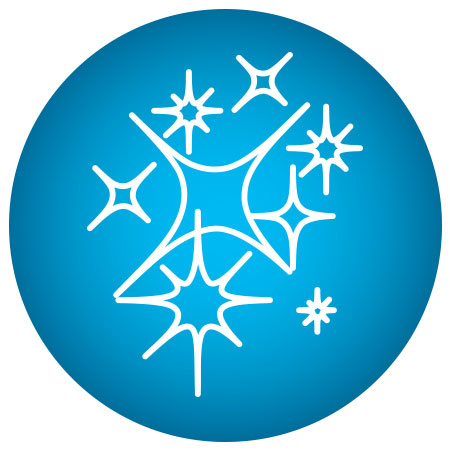When He Comes: Part V

Can a course based on secular wisdom align with Torah values?

I find it hard to wait for Mashiach’s arrival because it feels so distant, and I can’t manage to tap into the longing. What can I do?
My father, Reb Avraham ben Naftuli z”l, passed away this summer, at the beginning of the Three Weeks. Since all of us sisters were together on the Shabbos of shivah, we got to sing “Kiryas Masos.”
My father was a Stuchiner chassid. Stuchin, a Galicianer chassidus originating in Ropschitz, has a repertoire of zemiros that includes numerous songs of intense longing depicting the Geulah. My father would sing them at various occasions during the year.
“Kiryas Masos” is a particularly moving passage from the Rosh Hashanah yotzros, which declares: “The city of joy, the Beis Hamikdash and the Azarah… The heaven and earth will then sing His name; the forests will clap their hands from great joy in sweet praise, because Hashem has remembered His nation.”
While the chassidim sing this during the Rosh Hashanah davening, they also do so during the Shabbosos of the Three Weeks in order to arouse longing for the Geulah.As we finished singing, my sister remarked, “Imagine if all who are anxious about Mashiach could sing this song? Placing ourselves in the grandeur of Mashiach’s times cuts through the fears surrounding his coming.”
Her suggestion resonated with me, and I realized that while I’d shared many ideas on how to generate a desire for Mashiach in The Core of Emunah, I’d left this one out.
We all know stirring tunes that describe either the joy of the ingathering of galus or the delight of the Messianic era. In fact, many of the tefillos of Tishrei are in that vein:
Sanctify Your Name upon Yisrael Your people, Yerushalayim Your city… all of Your creations should prostrate themselves before You, and should all unify to do Your will with a whole heart… Give honor to Your nation, praise to those who fear You, good hope to those who seek You… joy to Your land… tzaddikim should see and rejoice…
From the Far East to California, wherever there were Jews davening on Rosh Hashanah, they sang these heartfelt words, conjuring the glorious visions of Mashiach’s world.
Tzaddikim noted that the letters of Marcheshvan can be pronounced as “merachashin — murmuring.” Jews don’t part easily from Tishrei. Our lips are still murmuring its prayers; our hearts still quiver with its hopes. We can bring a Tishrei-style yearning for Mashiach with us into the year by visualizing the Geulah through inspirational song.
Ignite
I noticed that when faced with frustration or disappointment — even in areas that were objectively trivial — I wasn’t internalizing the message that everything is from Hashem and is good.
Finally, I learned that I needed to empathize with myself. Even if my loss was unimportant from a wider perspective, there was a part of me that was devastated, and until that part felt heard, it would protest.
Interestingly, as soon as I gave myself the empathy I needed, the message of bashert clicked right in.
—Devory M.
“I wish I could love the best Jew as much as Hashem loves the worst Jew”
— Baal Shem Tov
Fueling the Flame
There are many courses today on emotional growth, parenting, marriage, etc., that claim to be Torah-based, but are similar to that which is available in the non-Jewish world. I’m confused about them; are they okay to listen to and apply to my life?
There are two strata from which we receive information — Torah and chochmah. As we know, chochmah can very well come from non-Jewish sources, while Torah is exclusive to those who have received it from Sinai.
Before evaluating any person’s teachings, we have to ask: “Where is this person coming from? Is this a person who learns Torah? Is he giving over the teachings of a talmid chacham? Is he part of the chain from Sinai?”
Know the hallmarks of talmidei chachamim: Their primary interest will be avodas Hashem; they will be subservient, accepting, and completely loyal to the truth — whatever it may be — and their goal will be to transmit the Torah’s teachings, not to “solve society’s problems.” If we identify these factors, then what the person is teaching may well be true Torah, and can be trusted.
However, if the person’s primary knowledge comes from non-Torah sources, the information he teaches is categorized as chochmah. It may align with Torah values; it may sound similar to Torah ideas, but it’s not rooted in and growing from the Eitz Chaim, the Tree of Life that is Torah.
Does this mean that we reject such teachings? Not necessarily. It’s possible to learn useful ideas and techniques from chochmah. But we do so cautiously, judging for ourselves, “Does this work for me? Will it help me in my life as a servant of Hashem?” If yes, use it in proper context. If not, feel no guilt discarding it.
—Rebbetzin Beila Kviat, educator for many decades and principal at Bnos Shoshanas Yaakov
Heavenly Rerouting
After having been up Thursday night with my son Duvi who was in terrible pain and vomiting, we went to the hospital. But they couldn’t figure out what was wrong with him. That Shabbos he had a seizure, so they admitted him to the ICU. When he was there, my husband saw pimples — he had chicken pox.
While chicken pox is a harmless disease for most children, for Duvi, who suffers from a rare chronic kidney disease called nephrotic syndrome, it can be deadly. The virus had triggered liver failure.
My husband’s friend, a renowned medical askan, got the top doctors involved. The consensus was that he should be taken to CHOP, where he could be given a transplant as soon as he stabilized. But he would need to be rushed there ASAP, before his situation became too critical to allow the transport.
The doctors approved. We packed up, and the helicopter was ready, but then we received the news: It was too cloudy to fly safely.
We were devastated. We spent Monday and Tuesday frantically trying to arrange the transfer by ambulance, while Duvi’s condition deteriorated. On Wednesday, there was a phone conference between several doctors from the attending hospital and the CHOP doctors.
“Why are you bringing him here?” one CHOP doctor asked. “He needs the MARS machine [which does liver dialysis], and the only hospital in New York that has the machine is Montefiore.”
Duvi was transferred to Montefiore, and immediately upon arrival he was taken for an MRI. The test showed that without the necessary treatment, he was liable to suffer a brain hemorrhage imminently. Dr. Shlomovich, the only doctor in the hospital who knew how to use the machine, hooked him up immediately.
Dr. Shlomovich explained that the MARS machine had been taken off the market. It had lain in a closet until now and had been used as a stepping stool. But he had decided to learn how to use it. Duvi was the fourth person, and the first Jew, to have been helped by this machine in Montefiore.
Dr. Shlomovich also told us that he had been considering taking a job in a Florida hospital, but his rav had told him to wait a little while before changing jobs. His rav’s advice saved Duvi’s life.
I had been so heartbroken when the transfer to CHOP failed. But had he been there, he would never have become stable enough for a transplant. Instead, Hashem led him to Montefiore, where he was miraculously cured without one.
—Malky R.
Please daven for Shalom Dov Ber bas Malka Yachat
(Originally featured in Family First, Issue 816)
Oops! We could not locate your form.


